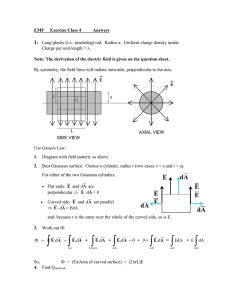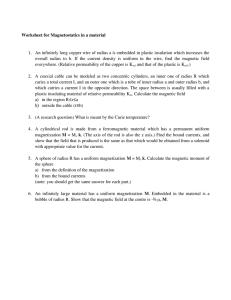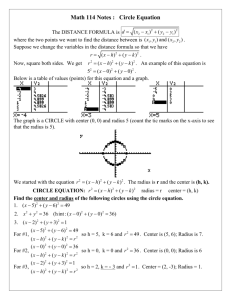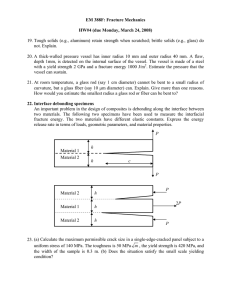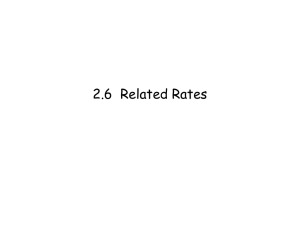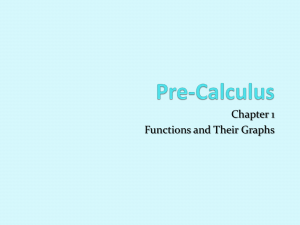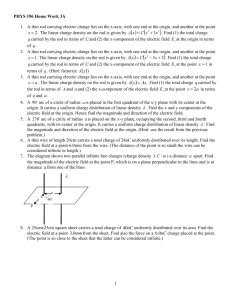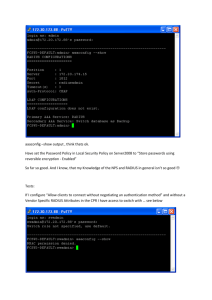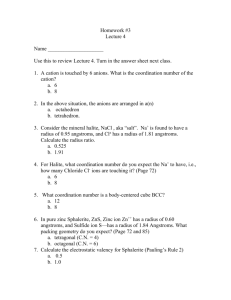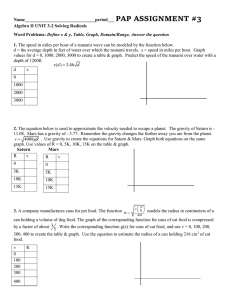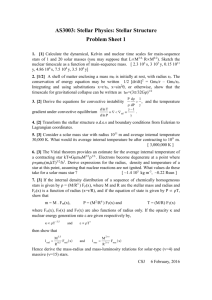Chain Rule Application Questions
advertisement
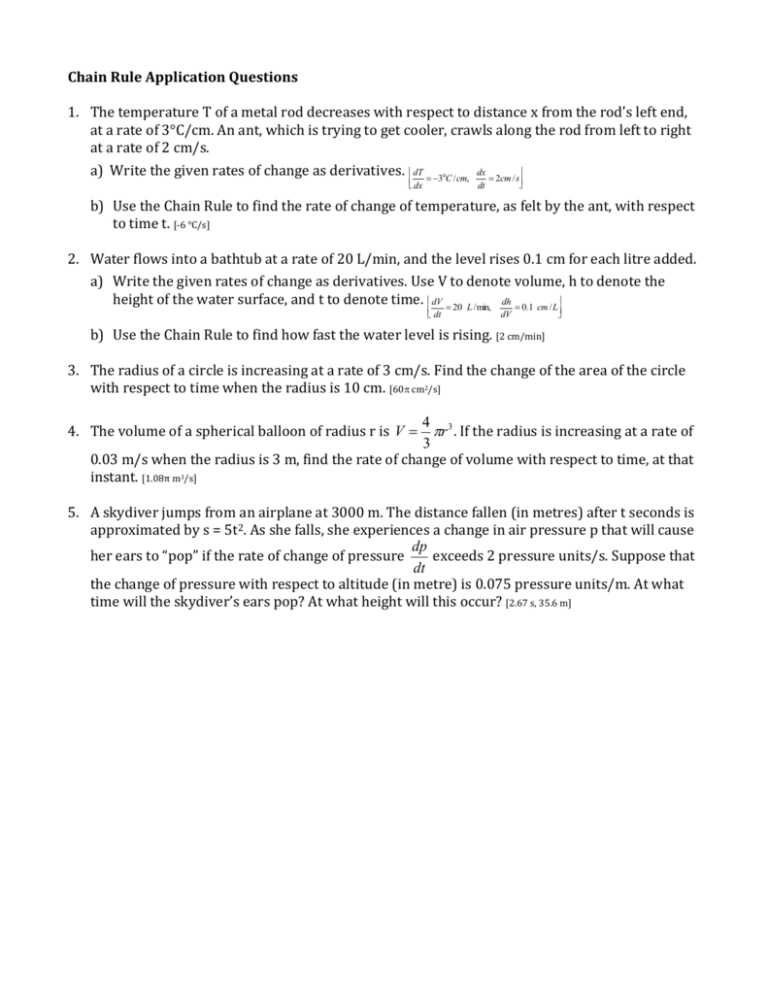
Chain Rule Application Questions 1. The temperature T of a metal rod decreases with respect to distance x from the rod’s left end, at a rate of 3°C/cm. An ant, which is trying to get cooler, crawls along the rod from left to right at a rate of 2 cm/s. a) Write the given rates of change as derivatives. dT 3 C /cm, dx 2cm /s o dx dt b) Use the Chain Rule to find the rate of change of temperature, as felt by the ant, with respect to time t. [-6 °C/s] 2. Water flows into a bathtub at a rate of 20 L/min, and the level rises 0.1 cm for each litre added. a) Write the given rates of change as derivatives. Use V to denote volume, h to denote the height of the water surface, and t to denote time. dV 20 L /min, dh 0.1 cm /L dt dV b) Use the Chain Rule to find how fast the water level is rising. [2 cm/min] 3. The radius of a circle is increasing at a rate of 3 cm/s. Find the change of the area of the circle with respect to time when the radius is 10 cm. [60 cm2/s] 4 3 r . If the radius is increasing at a rate of 3 0.03 m/s when the radius is 3 m, find the rate of change of volume with respect to time, at that instant. [1.08π m3/s] 4. The volume of a spherical balloon of radius r is V m. The distance fallen (in metres) after t seconds is 5. A skydiver jumps from an airplane at 3000 approximated by s = 5t2. As she falls, she experiences a change in air pressure p that will cause dp her ears to “pop” if the rate of change of pressure exceeds 2 pressure units/s. Suppose that dt the change of pressure with respect to altitude (in metre) is 0.075 pressure units/m. At what time will the skydiver’s ears pop? At what height will this occur? [2.67 s, 35.6 m]
